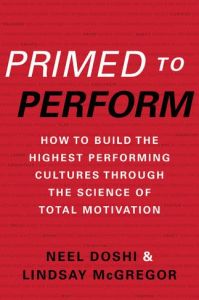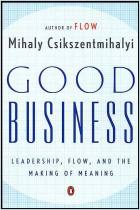Зарегистрируйтесь на getAbstract, чтобы получить доступ к этому краткому изложению.

Зарегистрируйтесь на getAbstract, чтобы получить доступ к этому краткому изложению.
Neel Doshi and Lindsay McGregor
Primed to Perform
How to Build the Highest Performing Cultures Through the Science of Total Motivation
HarperBusiness, 2015
Что внутри?
Neel Doshi and Lindsay McGregor offer sterling advice on engagement, motivation and performance: Provide play, purpose and potential, not bonuses.
Recommendation
Consultants Neel Doshi and Lindsay McGregor bring together just about everything worthwhile about employee engagement, motivation and workplace performance. They offer data and evidence to support each claim and piece of advice. Their entertaining case studies inform readers throughout, illustrating the three essential “direct motivators” that every company should use to build long-term success and the three “indirect motivators” that lead to lower performance. Though this manual can be repetitive, getAbstract recommends it highly. For leaders at every level, HR professionals, compensation executives, consultants, entrepreneurs and students, this could be today’s best work about motivating performance.
Summary
About the Authors
Neel Doshi and Lindsay McGregor worked together at McKinsey & Company before launching Vega Factor, a consulting firm dedicated to total motivation science. Their ToMo survey is available at the primedtoperform website.






















Comment on this summary